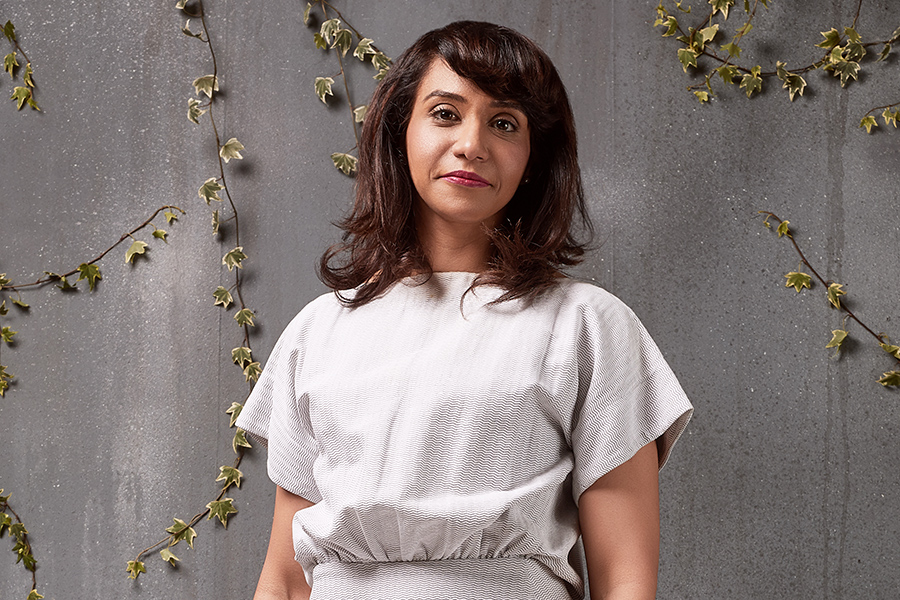
Heba Al Fazari, founder & CEO, Coveti
Coveti is an online fashion platform that sells creations of niche, cool and independent fashion brands from across the globe; in the words of the founder, these designers are “Coco Chanels” of the future. Coveti has been built to support the rise of the talented, next-generation fashion designers, emphasises Emirati entrepreneur Heba Al Fazari, founder & CEO, Coveti.
“Even amidst the current crisis, we have seen over 86% month-on-month growth in our sales and new brands coming on board,” she shares. “We have new brands on the waitlist, to be onboarded based on priorities. These talented independent designers need a platform, like Coveti, to support their entrepreneurial endeavours, at a time when big departments stores – where their products were stocked – are going under administration. We are investing heavily to make our platform more robust, to make it easy for brands and designers, irrespective of the size, to start their business overnight on Coveti.”
Even before the pandemic, Coveti was recording a 10-fold increase in brand presence every week. “We work with the brands on a commission basis, which is sustainable for them. That’s an advantage, as we don’t charge them a fee to be present on Coveti, while opening them up to the world,” Al Fazari states.
Also read: UAE start-up survives the ‘great lockdown’
Building resilience
Online and tech-forward businesses have generally emerged as the ‘winners’ amidst the on-going COVID-19 pandemic, as people shifted focus to e-commerce channels largely to shop for essentials and certain non-essential items too.
“Since the COVID-19 outbreak, several online businesses offering non-essential products and services have suffered too,” Al Fazari observes. “It is not easy to be an entrepreneur amidst a global crisis – in my opinion, a black swan. Having that said, during an economic downturn, the savvy entrepreneur should still be able to create opportunities by taking calculated risks.”
“In our case, we have been resilient due to our customer-focused DNA that led us to introduce new product categories, our global reach and non-reliance on a single market,” she adds.
Some of the strongest markets for Coveti during this period included Saudi Arabia, Germany, the UK and the US. Even markets – such as the UAE and Kuwait – where Coveti saw a slight drop in April recovered quickly, while there was no drop in sales in Saudi Arabia. “If there was a decline in a certain market, it was offset by another. A diversified approach has protected us from market volatility,” Al Fazari points out.
Ensuring longevity
“We have focused on creating strong fundamentals and a bullet-proof unit economics to fuel profitability and growth. The Coveti marketplace is just the tip of the iceberg; we will invest more on the technology backbone of our business to make it stronger and agile,” Al Fazari proclaims. “We will continue investing in our artificial intelligence (AI) driven recommendation feature that helped increase our cart size, even during the pandemic.”
“Moreover, our business model is more resilient as we rely on third-party inventory and a distributed supply chain,” she explains. “Having said that, logistics was nothing short of a nightmare during the lockdown period. We had to work closely with our logistics partners to renegotiate multiple deals to support the designers, who are mostly independent entrepreneurs. They were already suffering due to temporary closure of boutiques and retail stores.”
Despite all possible support, Coveti did confront disruptions in supply from a few markets like Colombia and Russia. “We acted quickly and managed to move supply from one partner to another, which eventually resulted in sales growth for these designers,” Al Fazari shares.
Being customer-centric
The customer-centric approach also worked in Coveti’s favour. While overall it has been a smooth ride, compared to what many businesses are confronting, Coveti too faced challenges arising from cancellations and returns as consumers panicked and wanted their money back.
“It is only obvious that consumers are reticent to spend on non-essentials, therein impacting fashion retailers like us. We understood their predicament and stayed focussed on the bigger goal of adding value to their shopping journey, while supporting our designers,” Al Fazari observes.
Even though customer spend has declined, Coveti has consciously decided to cut down on promotions, as it could hurt the brands and designers. “We are trying to increase our top-line growth as a result of previous investment in marketing that increased our customer retention rate and customer lifecycle. As a result, we have seen our repeat customers shop on Coveti once in six weeks,” she reveals.
“The needs of our customers have changed,” she continues. “In order to meet their demand, we are launching homeware, kids wear and sourcing face masks for weddings. We quickly pivoted to offer what they wanted and in return, they have supported our small business partners. As new products were launched, our customers returned to shop on Coveti.”
When asked is Coveti is offering ‘buy now, pay later’ schemes on its platform to make the purchase process easier, Al Fazari says, “We are offering instalment services in some of the European markets.”
Since Coveti ships to over 150 countries globally, irrespective of where the customer is, the brand is able to reach them. This location-agnostic nature of the business makes it future-proof. “Overall, innovation and customer-centricity will be crucial to drive and sustain growth in the e-commerce landscape,” Al Fazari concludes.
For all the latest retail news from the Middle East, follow us on Twitter and LinkedIn, like us on Facebook and subscribe to our YouTube page.